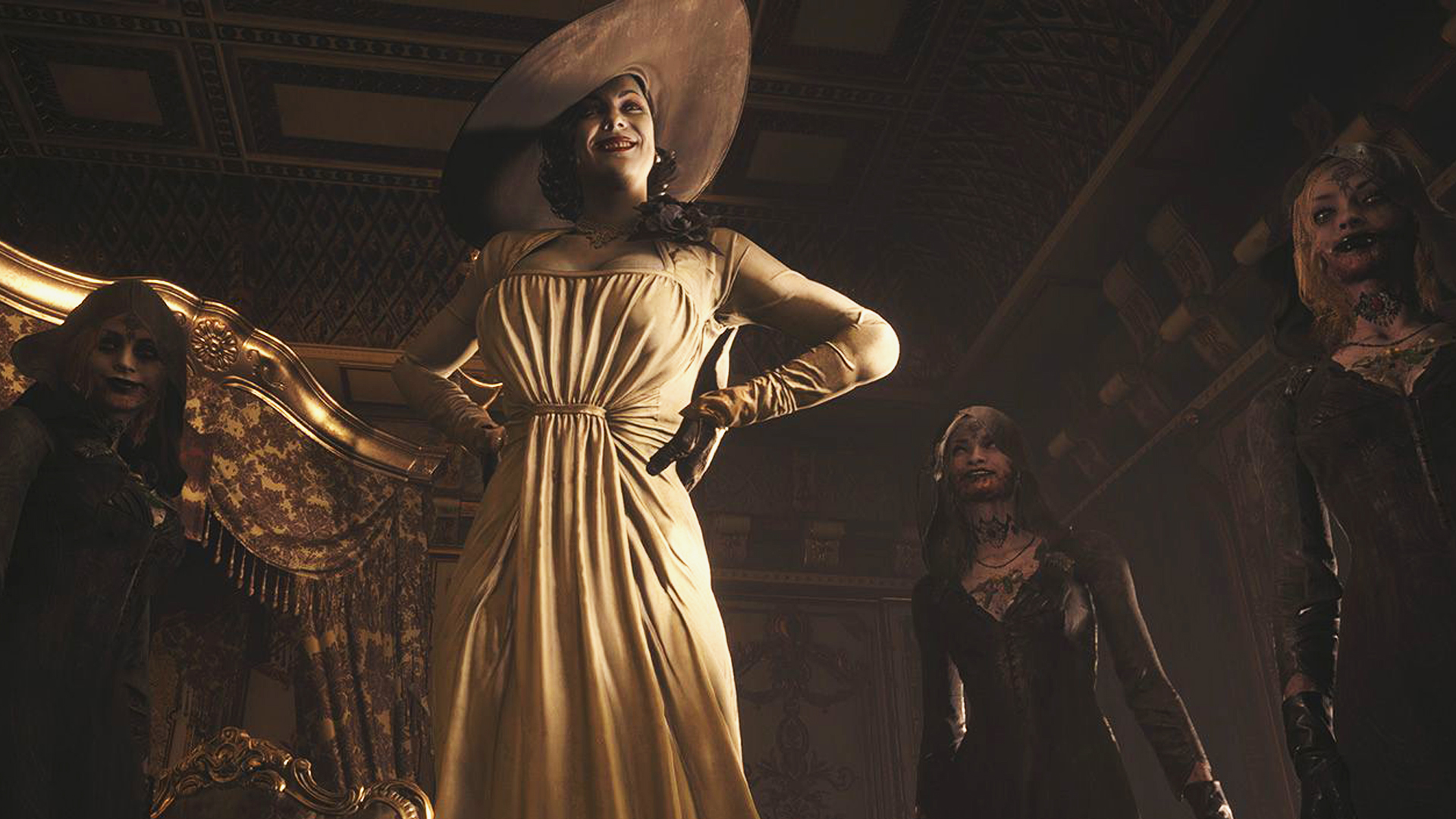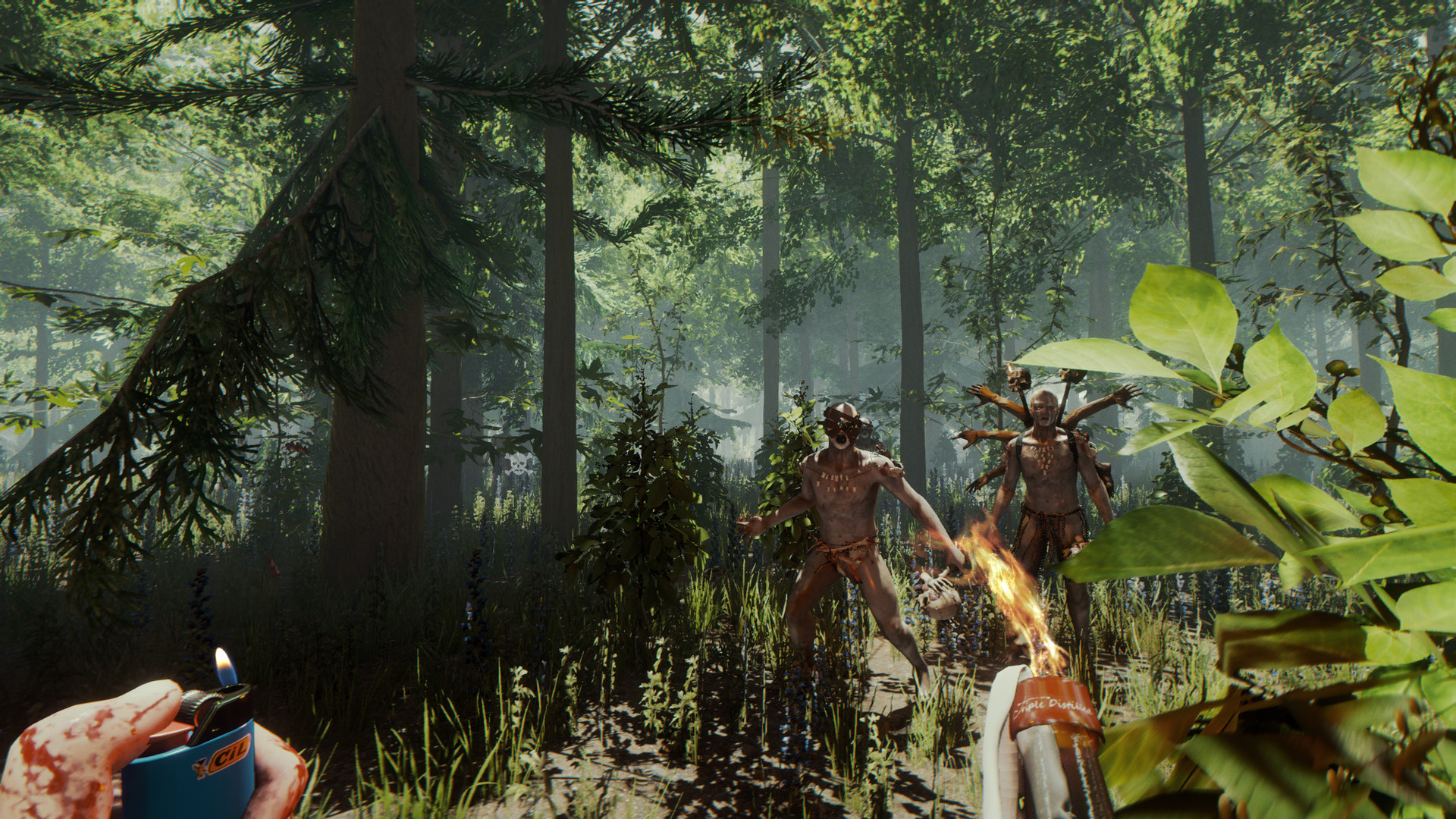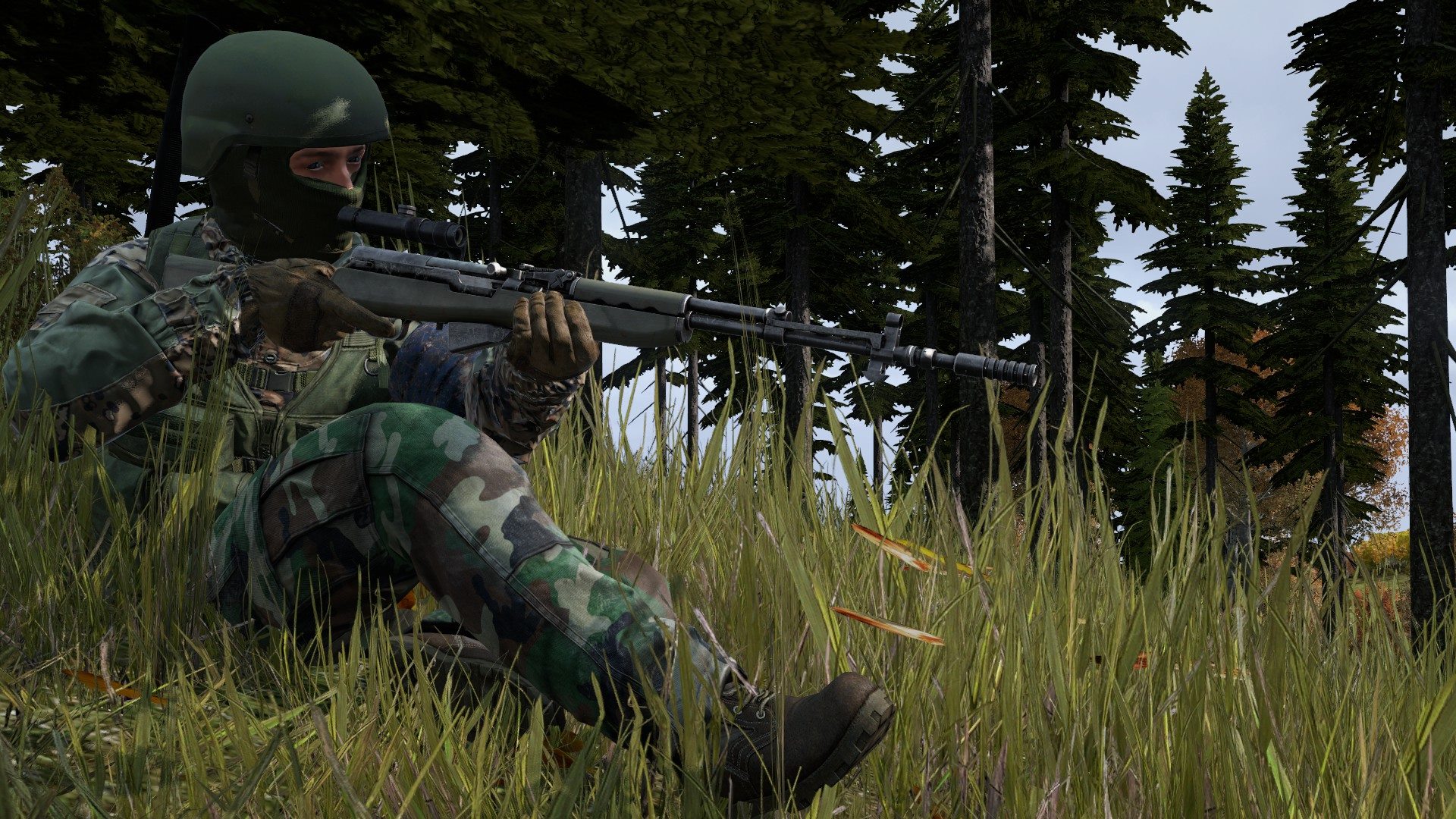The difference between survival and survival horror is pretty kinky
Are you a dom or sub?

Despite all the struggles, when I get good at a survival game I feel empowered—like a total badass. But something a little different stirs inside me when I play a survival horror game. They might share a lot, but I'm more interested in what makes them distinct. Fair warning: the difference is kinda kinky.
A survival game can be riddled with horror themes, and play on that fight-or-flight response to get you invested, but that doesn't make it a survival horror. This is entirely separate territory, and it's not just creepy aesthetics that set it apart from your standard survival. While fear is an equally integral part of both, there's another element that really distinguishes the two: control.
There's a huge focus on crafting in survival games. Pick up a stick here, turn it into a barrier there. You're handed a good amount of agency, or control, as a way to push back against your fears. This sense of empowerment is a feeling you'll be familiar with if you've played survival games like The Forest or DayZ, both of which are heavily horror themed, but not survival horror.

In The Forest, you encounter cannibalistic tribes, cave-crawling mutants and dead babies that fling themselves at you. Plenty of horror. But as the game progresses, you start to ask yourself—as you and your friends mow through a quiet encampment, slaughtering everyone in sight and cooking their legs for breakfast—"Who are the real monsters here?"
You've been handed so much control, that you start to tip over into becoming the very thing you once feared, just to keep the advantage.
Same goes for DayZ. The horror theme is obvious throughout the game: ambling zombies, dreary setting, the intense pitch blackness encountered in the dead of night. But once you overcome hunger, and realise that the zombies are quite pathetic, you're left with the startling truism that the real monsters in the game are other players.
In both cases, the dreadful tension emerges not from the monsters or the darkness, but from the thought that some utter bastard will destroy everything you've worked to build. So, you endeavour to dominate.
Keep up to date with the most important stories and the best deals, as picked by the PC Gamer team.
You can play through either game as a pacifist, but cracking skulls tends to be the most effective playstyle. I mean, what's the fun of having all that control if you don't exert it?
Taking players down a peg
In survival horror, however, there's a lot less opportunity to go building up defenses. You're too busy hiding in a bin to consider how to fashion a snare. It tends to strip the player back and only provides minimal crafting opportunities. Hiding and running are often the only mechanics that let the player avoid whatever adversaries lurk in the shadows. The player is tossed about, their vision is often impaired or obscured with trippy cam-shakes, or gnarly angles. Or... blindfolds. You see where I'm going with this, right?
All this works to make the player feel as vulnerable as possible.

This is a genre that actively withholds agency, keeping the players on the back foot. It leaves them helpless until the most opportune moment to relieve the tension. Sounds a lot like BDSM to me, but with the player on the flipside of the dynamic—submission.
You're not afraid of losing progress as much, since you probably only have a flashlight to your name. Besides, there's an autosave not five minutes back. You just don't want to have to live through the suspense of potentially being manhandled by a giant vampire lady again. Or do you?
So, while atmosphere and aesthetics do play a big part, it's lack of control that really tips the scale between survival and survival horror. We have the option to push through adversity by banding together and taking charge of the situation in a survival game, but a survival horror leaves you exposed and powerless for as long as humanly possible.
Admit it, you play survival so you can feel like the master of your destiny, but you play survival horror because you want to be dominated.

Screw sports, Katie would rather watch Intel, AMD and Nvidia go at it. Having been obsessed with computers and graphics for three long decades, she took Game Art and Design up to Masters level at uni, and has been rambling about games, tech and science—rather sarcastically—for four years since. She can be found admiring technological advancements, scrambling for scintillating Raspberry Pi projects, preaching cybersecurity awareness, sighing over semiconductors, and gawping at the latest GPU upgrades. Right now she's waiting patiently for her chance to upload her consciousness into the cloud.

